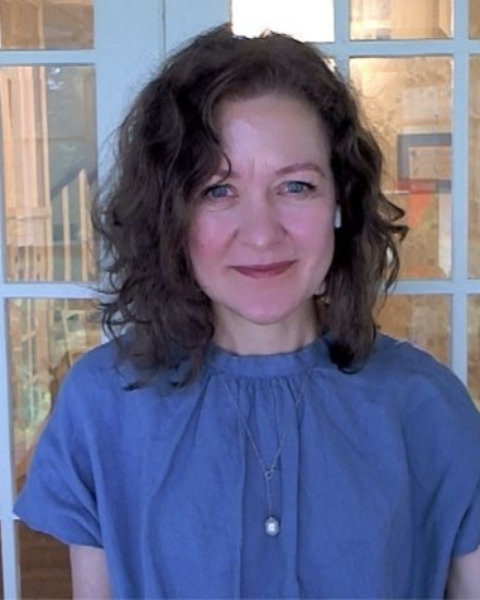Nonprofit and Foundations
Recasting the story of accountability. Who’s in the lead role? Who’s a supporting actor? (Spoiler: it should be completely different to how it typically is.)
-

Rhonda Schlangen, MA (she/her/hers)
Learning and Evaluation Consultant
Rhonda Schlangen Consulting, LLC
West Pawlet, Vermont, United States -
JC
Jim Coe, n/a
Learning and evaluation consultant
Independent consultant
London, United Kingdom -

Irit Houvras
Vice President for Strategic Learning, Research and Evaluation
AJWS, United States
Presenter(s)
Chair(s)
Presenter(s)
Location: Grand Ballroom 4
Abstract Information: Philanthropies are renewing attention to funding social change movements and being responsive to the movements and communities their resources are ultimately designed to serve. Some fundamental shifts in grantmaking are underway. In response, evaluation doesn’t need to simply shift. If evaluation is to support both funders and grantees to make the best possible contribution to creating change, we need to radically reframe who is accountable to whom for what and what is important to measure. In this session we explore the implications of this radical rerouting, drawing on two recent papers "Pulling up the Floorboards: Reshaping accountability and evaluation in an era of core costs grantmaking" and "Transformative Shifts: From Capacity to Movement Power". First, we will present an accountability framework that inverts conventional thinking about funder accountability. Next, we will explore an example of how one movement funder is introducing a radical reconceptualization of “capacity” measurement to understand how its values-based Accompaniment model supports movement grantee partners. Session participants will discuss: • Why evaluation, when untethered from assumptions about legitimacy and accountability, can tell a different story about what effectiveness looks like; and • What it can look like to fundamentally shift what we do as evaluators in a way that truly holds funders accountable for the changes they are trying to support. Re-examining norms in philanthropy requires new ways of thinking about effectiveness and about approaches to evaluation. It is not enough to embroider around the edges: we must transform our ways of thinking about accountability and measurement.
Relevance Statement: Several trends are raising fundamental questions about the role of philanthropy in supporting the recipients of grants. Equity demands structuring grants differently; focusing on systemic social change points to funding movements. Previously unthinkable questions are also being raised about the legitimacy of funders to determine what effectiveness looks like and what change needs to happen. At the moment, these questions are solidifying around questions of accountability to the communities and movements the resources are to serve. While rhetorically we embrace elevating accountability to communities and movements, really doing so requires also asking questions about accountability flows in the funder- grantee dynamic. All these questions are uncomfortable. But they also open up new space for evaluators to think and work differently. In this session, we draw on two related recent papers that take on these questions and advocate for funders and evaluators to shift ways of thinking and working. "Pulling up the Floorboards: Reshaping accountability and evaluation in an era of core costs grantmaking" by Jim Coe and Rhonda Schlangen and "Transformative Shifts: From Capacity to Movement Power" by Irit Houvras and an Accompaniment Working Group at American Jewish World Service, challenge funders and the evaluation community to reexamine ways of working to ensure funders’ evaluation does not undermine the social changes they are trying to support. In this session, we will challenge underlying concepts around philanthropic evaluation by asking why we assume resources confer legitimacy and how “mutual” accountability skirts what we argue is the real issue: who is accountable to whom for what. Then, we offer an example of how one movement-centered funder has been learning and adapting its measurement approaches to align with its values and commitment to supporting its partners to be responsive to the movements and communities of which they are a part. We will explore critical questions of accountability in different ways, including: • What does values-based grantmaking and collaboration look like to support movements? • What are the implications for evaluation when we upend accountability flows to movements and the communities they serve? • What happens when evaluation moves away from focusing on the transaction of a grant—what value funders get for their money— and we ask questions about the basis for trust and accountability in the funder-grantee relationship? The session will offer a radical and perhaps uncomfortable exploration of the implications of funder accountability to the movements and communities we support. A radical shift can put communities and movements at the center of the grantmaking equation, with accountability flowing from funders towards movement grantees and ultimately to communities – and not from them towards funders. The practical expression of this flip is in AJWS’s approach to measuring its Accompaniment of its movement partners. We explore these concepts and examples as philanthropy seeks to be more sensitive about power in what are inevitably asymmetrical power relationships. Considering the dynamics of accountability can give a secure underpinning to the desire to navigate power meaningfully.
Presentations:
-
11:30 AM - 12:30 PM ETN/A
Presenter: Jim Coe, n/a – Independent consultant
-
11:30 AM - 12:30 PM ETPulling up the floorboards and reshaping evaluation and accountability
Presenter: Rhonda Schlangen, MA (she/her/hers) – Rhonda Schlangen Consulting, LLC
-
11:30 AM - 12:30 PM ETTransformative shifts: how funders can ensure they are playing the supporting role
Presenter: Irit Houvras – AJWS
